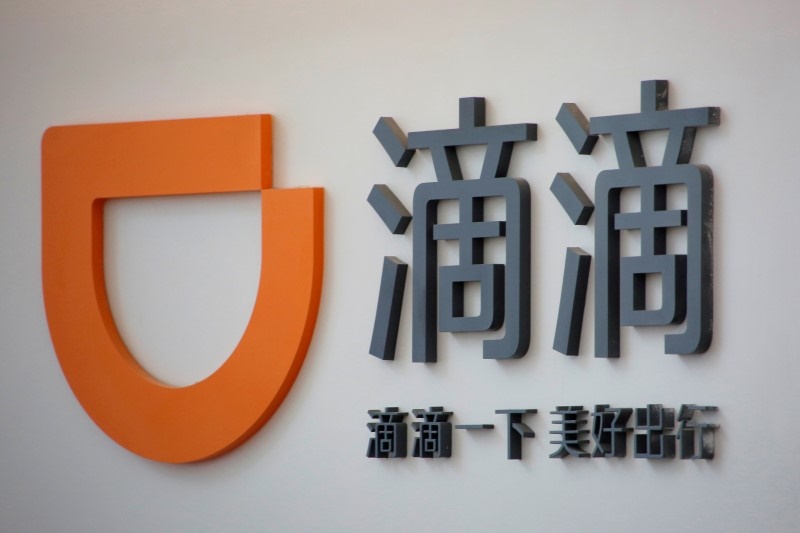- Home
- Apps
- Apps Features
- Didi's Dominance of Uber in China Offers Roadmap for Ride Hailing Rivals
Didi's Dominance of Uber in China Offers Roadmap for Ride-Hailing Rivals

The two companies on Monday confirmed the sale of Uber China to its chief competitor, ending a two-year, money-losing effort to break into one of the world's toughest markets. Uber leaves with a major stake in Didi - about a fifth of the combined company - but will give up control of its China operations.
Didi had a head start and maintained the lead on Uber with a strategy that other rivals may emulate, analysts and investors said.
Didi counts two of the most powerful, best capitalized Chinese Internet companies as backers; has tight connections with local government; made an ally of local taxi drivers and expanded into services such as buses that Uber ignored; and exploited its knowledge of local culture and consumers.
Uber declined to comment. Among those closely watching Didi's acquisition is Grab, the Southeast Asia ride-hailing startup that competes with Uber in countries including Singapore and Vietnam. Grab says its private-car business has about half of the Southeast Asian market and its taxi-hailing service has 95 percent.
"Our investor and global partner Didi has effectively won the battle for market share dominance in China," Chief Executive Anthony Tan wrote in an August 1 memo to Grab staff seen by Reuters. "We have seen that, when the local champion stays true to their beliefs and strengths, they can prevail," he wrote.
Grab and Didi formed an alliance with India ride-service startup Ola and U.S. operator Lyft last year, and the Asian companies operate in what could be the next battlegrounds for Uber, said Jeremy Carlson, principal analyst in autonomous driving and mobility at IHS Markit.
"Grab knows very well what Didi is doing in China and is replicating that," such as offering transit options beyond personal car services, said Hans Tung, managing partner at GGV Capital, which has invested in both Grab and Didi.
Grab also has a powerful regional backer in Japan's SoftBank Corp..
In a news release, Didi called the deal to buy Uber China a "landmark transaction" that "signals a new stage in the development of China's rideshare industry."
Because China is a unique market - in population, regulatory complexity and concerns about foreign ownership of big companies - some lessons learned there may not transfer to other regions.
"It's the largest ride-sharing market in the world, but it is also probably the most complex for any company in the world," said Bill Gurley, a partner at Benchmark and an Uber board member. "Our ability to compete and execute globally is very sound."
Didi's road map
Still, Didi made moves that may serve as a guide for other Uber competitors on its way to building a juggernaut that gives customers more than 14 million rides each day.
Didi consolidated local competition, forming from a merger of China's top two ride-hailing firms, and it had the backing of China's top Internet companies Alibaba Group and Tencent.
Those connections enabled Didi customers to hail a ride and pay for it through payment systems Alipay, Alibaba's system, and social media platform WeChat, which is owned by Tencent.
"Didi had a much bigger presence on China social media," said David Chao, general partner at DCM Ventures, which invests in China.
Uber eventually got backing from Chinese conglomerate Baidu, but by that time Didi had overtaken it.
"Uber joined the party a little too late," Chao said.
Didi also started its business focused on taxi-hailing, allowing it to surpass Uber China in its number of drivers, since Uber relied on privately owned cars in China, where vehicle ownership has historically been low. Didi has expanded to buses, chauffeurs and other services.
Other companies have played up their local knowledge. Ola recently acquired a local payments service Qarth, with connections to Indian banks, to expand the ways passengers can pay.
Uber has been criticized for launching in China in early 2014 without fully understanding the local culture, business dynamics and consumers, such as its focus on private cars.
"Uber was trying to import some of those ideas that might have worked well in other markets and adapt and move that stuff and apply it to China," said IHS Markit's Carlson.
Still, Uber's loss in China could make it a greater threat elsewhere, as it focuses its efforts and money. Uber was losing more than $1 billion a year to compete in China - money it can now spend in other markets, Carlson said.
Tan, the Grab chief executive, warned in his memo that Uber could make a harder push in Southeast Asia.
"With the deal in China, we expect Uber to turn more attention and divert resources to our region," he wrote.
© Thomson Reuters 2016
Catch the latest from the Consumer Electronics Show on Gadgets 360, at our CES 2026 hub.
Related Stories
- Samsung Galaxy Unpacked 2025
- ChatGPT
- Redmi Note 14 Pro+
- iPhone 16
- Apple Vision Pro
- Oneplus 12
- OnePlus Nord CE 3 Lite 5G
- iPhone 13
- Xiaomi 14 Pro
- Oppo Find N3
- Tecno Spark Go (2023)
- Realme V30
- Best Phones Under 25000
- Samsung Galaxy S24 Series
- Cryptocurrency
- iQoo 12
- Samsung Galaxy S24 Ultra
- Giottus
- Samsung Galaxy Z Flip 5
- Apple 'Scary Fast'
- Housefull 5
- GoPro Hero 12 Black Review
- Invincible Season 2
- JioGlass
- HD Ready TV
- Laptop Under 50000
- Smartwatch Under 10000
- Latest Mobile Phones
- Compare Phones
- Tecno Spark Go 3
- iQOO Z11 Turbo
- OPPO A6c
- Samsung Galaxy A07 5G
- Vivo Y500i
- OnePlus Turbo 6V
- OnePlus Turbo 6
- Itel Zeno 20 Max
- Lenovo Yoga Slim 7x (2025)
- Lenovo Yoga Slim 7a
- Lenovo Idea Tab Plus
- Realme Pad 3
- Garmin Quatix 8 Pro
- NoiseFit Pro 6R
- Haier H5E Series
- Acerpure Nitro Z Series 100-inch QLED TV
- Asus ROG Ally
- Nintendo Switch Lite
- Haier 1.6 Ton 5 Star Inverter Split AC (HSU19G-MZAID5BN-INV)
- Haier 1.6 Ton 5 Star Inverter Split AC (HSU19G-MZAIM5BN-INV)

















